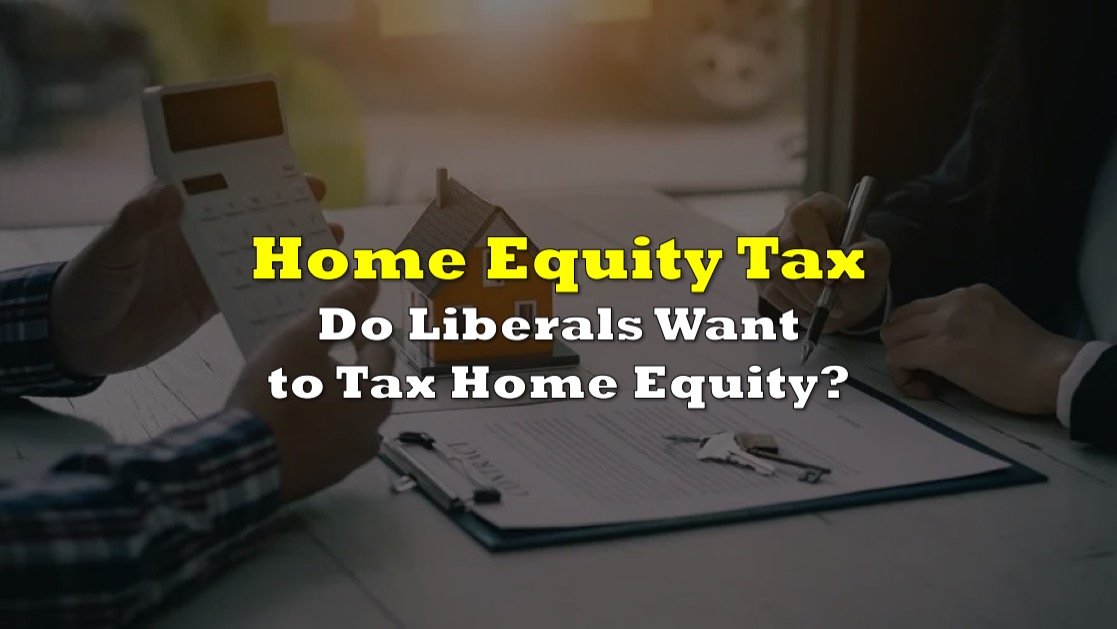As Canada grapples with an increasingly dire housing crisis marked by soaring property prices and rents, the matter has escalated into a significant political concern. Vulnerable demographics such as young individuals and fixed-income citizens are feeling the brunt of the rising cost of living.
Acknowledging the urgency of the matter, the Trudeau administration appears to be struggling to formulate effective strategies to address the crisis. In a Epoch Times piece by Cory Morgan, he laid out his point of view on the issue, highlighting that the government recently organized a cabinet retreat on Prince Edward Island, during which housing affordability was a central topic.
Among the speakers invited was housing expert Paul Kershaw, known for his unconventional ideas, including the suggestion of an equity tax on primary residences. The prospect of the Liberal government entertaining Kershaw’s proposals has critics fearing that this could have profound implications for homeowners and the housing market at large.
The government keeps giving hundreds of thousands of dollars to activist Paul Hershaw to study implementing a home equity tax on primary households
— Cory Morgan (@CoryBMorgan) August 26, 2023
Then they had him present to him at their cabinet retreat
The Liberals want to tax your home equity. https://t.co/RIXswvDUjz
The Canadian Mortgage and Housing Corporation (CMHC), a Crown corporation responsible for overseeing the housing market and home financing programs, has intermittently toyed with the notion of introducing a home equity tax on primary residences over the past few years. Despite the organization’s attempts to distance itself from the government’s direct influence, the entire CMHC board is appointed by government officials.
“The CMHC has repeatedly flirted with the notion of imposing a home equity tax on primary residences in the last few years. Every time it hints at supporting such a tax, it quickly retreats in the face of a public backlash. The organization just can’t seem to give up on the idea, however,” Morgan wrote.
Kershaw, who heads the think tank Generation Squeeze, has been at the forefront of proposing equity tax initiatives. Although CMHC officially denies actively pursuing such a tax, it has, on two separate occasions, provided funding to Kershaw’s group for reports specifically addressing this subject—amounting to substantial sums of $250,000 and $200,000. These financial investments have led skeptics to question the true intentions of CMHC’s stance on equity taxes.
Kershaw’s report submitted to CMHC has been met with mixed reactions. Critics argue that its rhetoric leans more towards social advocacy than objective analysis.
“The language is torqued with the politics of envy with statements such as: ‘The hard work Canadians do every day in their jobs is taxed far more than housing wealth windfalls gained by many homeowners while they sleep and watch TV,’ as it makes the case to tax homeowners,” the author added.
Morgan argued that homeownership often requires years of disciplined saving and substantial investments in property maintenance and improvements. Viewing equity growth as an unearned windfall has raised eyebrows, as it discounts the efforts homeowners put into their properties.
Kershaw’s argument that an equity tax could exert downward pressure on housing prices has been met with skepticism. Critics contend that such a tax might discourage new home construction, further tightening housing supply. Additionally, existing homeowners may be less inclined to sell or downsize their properties due to the prospect of an equity tax, exacerbating supply constraints. These economic counterarguments challenge the viability of Kershaw’s proposals.
The government’s search for new revenue sources has led some to speculate that the significant wealth locked within private citizens’ homes could be a tempting target. Even a modest equity tax could yield substantial revenue, potentially aiding in budget balancing. However, critics stress that any such move would trigger swift and vigorous opposition from homeowners.
Questions arise about the feasibility of redistributing funds acquired through an equity tax to alleviate housing pressures. The political calculus of whether such a policy could win support from renters and young voters while potentially alienating existing homeowners remains complex.
Another concern centers around retirees who rely on their home equity to support their post-work lives. The impact of an equity tax on these individuals’ financial stability is a valid concern that policymakers must consider.
As the impending election looms, housing is set to dominate the political discourse. The party that can present a coherent plan to tackle the housing crisis stands to gain favor from the electorate.
However, critics argue that the government’s choice to engage activists like Kershaw might not yield effective solutions. They contend that pursuing an equity tax on primary residences is a misguided endeavor—one that the Liberal government should seriously reconsider.
Information for this story was found via The Epoch Times and the sources mentioned. The author has no securities or affiliations related to the organizations discussed. Not a recommendation to buy or sell. Always do additional research and consult a professional before purchasing a security. The author holds no licenses.






